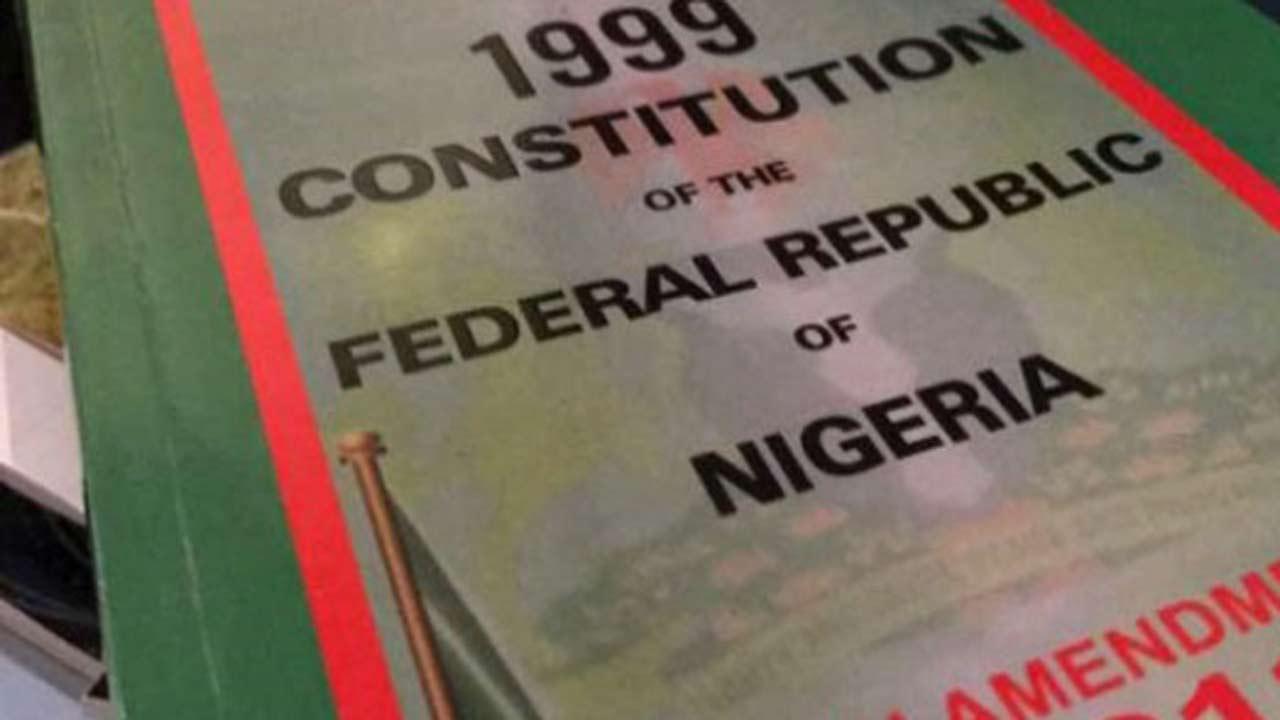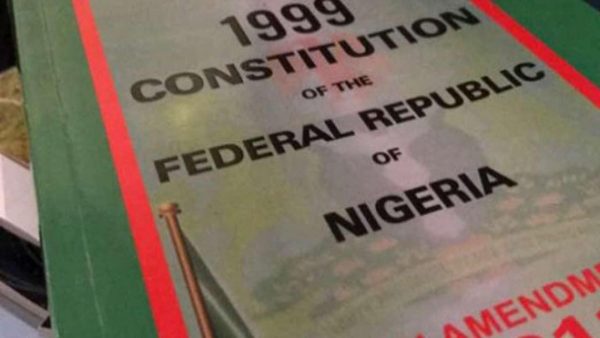The ongoing constitutional reform process is being classified by some skeptics and non-skeptics as a sham. Little wonder that the hearings conducted by the Senate at two locations per the six (6) existing geo-political zones were not without some drama as the event held simultaneously in 12 locations nationwide on May 26th and 27th.
Read more about Politics
Already, the Senate President has also announced that upon completion of the zonal public hearings on the review of the 1999 Constitution, a complementary national public hearing will hold in Abuja. The 2-day National Public Hearing on the proposals submitted from each zone to alter the provisions of the Constitution of the Federal Republic of Nigeria 1999 is scheduled to hold at the African Hall of the International Conference Centre (ICC), Abuja on Thursday, June 3rd and end on Friday, June 4th.
Many of the suggestions being tabled at the hearings are now at the risk of being inserted into a reviewed 1999 constitution without thorough vetting by the citizenry or constitutional experts – if the proposals ever make it past the Senate.
In the North-west, some quarters applauded when a group presented a proposal that Kaduna state be split into Northern and Southern Kaduna due to the incessant ethnic rancour. But as lofty as such recommendations are, they are bound to cause some other constitutional issues such as state creation/regional provisions, federal allocation, amongst others.
Also in the South-west, a Muslim group presented a memo to the committee which sat in Lagos proposing the implementation of Sharia in the region. The recommendation riled up some quarters as the South-west population is neither a Muslim nor Christian dominated demography. If such an egregious proposal accidentally finds its way into the constitution, it will upset the secular status of the larger Nigerian nation as political despots may then have legal basis to run the nation on Sharia laws.
Sign up to the Connect Nigeria daily newsletter
Ideally, a constitutional amendment cannot be done without the House of Representatives equally putting the recommendations by the Senate to a majority vote.
It does not stop there, the two-thirds of State Assemblies in the 36 states must vote in a majority in support of the recommendations by the National Assembly arms for the amendments to be instituted in the 1999 constitution. This measure is a ‘check and balance’ model to ensure that any amendments to the constitution are recommendations that are being sought by a wider range of the Nigerian population.
As of now, no one knows for sure how the Senate hopes to insert these amendment proposals into the constitution in the most legal way possible. If such information exists as to the process for inserting these seemingly harmless proposals into the 1999 constitution, it is not available in public domain yet.
This may be one of the tactics devised by the National Assembly to shroud the process in open secrecy while cunningly inserting selfish provisions into the constitutional review effort. The best recommendation for constitutional review which any reasonable citizenry can accept is centered upon a referendum process where a majority of the Nigerian population can get to vote on aspects they want adjusted in the constitution, without the bureaucratic bottlenecks put in place by the Nigerian legislative.
Featured Image Source: Vanguard News
Got a suggestion? Contact us: [email protected]


